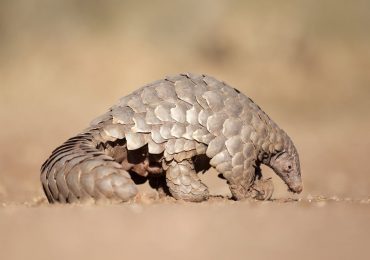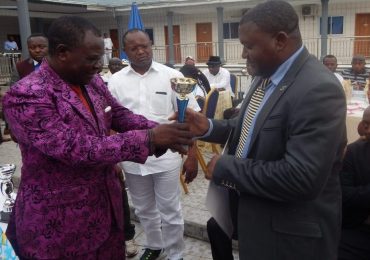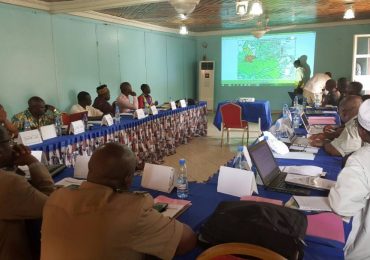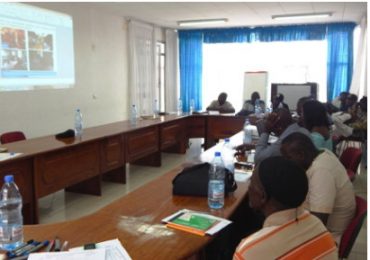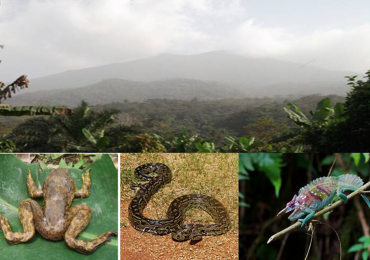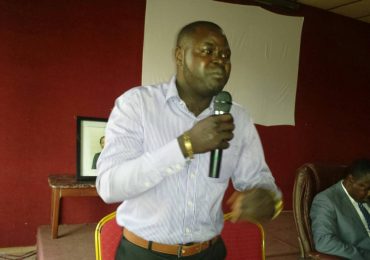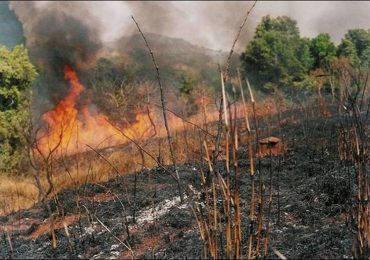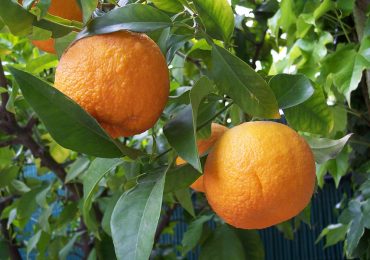Over 4.000 tons of Prunus africana barks are exported from Africa every year for pharmaceutical purposes. Prunus barks are used to treat prostate enlargement, which is a urinary disorder common in old men. Locally, people use Prunus barks and leaves to cure stomachaches, chest pains, heartburn, fever and sexually transmissible diseases. Prunus helps also to clean the system.
By Azore Opio
A cross-section of persons from Bangem Sub-division in Kupe-Muanenguba Division, South West Region, at a workshop last May received expert skills in domesticating and harvesting the vastly medicinal plant, Prunus africana.
At the workshop, financed by the French Embassy in Cameroon, participants were drilled on the medicinal cures of Prunus, its economic values, how to nurse, harvest and market the very valuable plant, which occurs naturally in the Muanenguba mountain forest area and is being commercially and unsustainably exploited.
Prunus africana bears values beyond being a medicinal plant to include economic benefits in terms of generating cash, importance for mixed farming, useful as timber and fuel wood; handy in agro-forestry, life fencing and for boundary demarcation. Despite these invaluable attributes, Prunus has often come under abusive exploitation due to increasing international demand for its bark extracts for medicinal purposes. In addition, clearing forests to make way for farming and recurrent bush fires in Bangem area also help to reduce the population of the plant. Quite often Prunus trees are completely cut down before debarking without replacement. For trees that are not cut, they are peeled from roots to the smallest branches, resulting in the death of wild species.
In grazing areas, cattle trample on wild Prunus seedlings, which stops the tree to grow naturally in the forest. Then many individuals involved in Prunus exploitation do not respect the official quantities of barks to be harvested and try to harvest more than can grow in nature.
It is against this rather disparaging background that the NGO, Community Action for Development (CAD) organised the workshop to build people’s skills and knowledge on sustainable Prunus domestication, and for various stakeholders to collectively seek lasting solutions to problems plaguing this important resource in the Munangeuba Mountain forest area. Participants thus, learnt how to choose flat nursery locations close to a permanent source of water and the transplanted area to reduce cost, prepare a nursery on fertile and well drained soil far away from disputed land area.
The participants were advised to always be in possession of tools such as cutlasses, watering cans, pick-axes to break up hard soil, rakes to level the soil and remove cut grasses as well as tracing lines used in pegging, and wheelbarrows for transporting materials and seedlings. They also learnt how to guard against the insects that damage Prunus stems by boring holes in them; other insects and animals like snails and goats which eat and destroy Prunus leaves; the fungi, which are often noticed as white powder on leaves in nurseries that cause early leaf fall as well as thieves who steal crops from the nursery, and those people destroy crops, especially on disputed land.
The benefits of integrating Prunus africana into farming systems and marketing were cited as farmers profit increase in yields since the soil is permanently fertilized thanks to Prunus leaves. Prunus trees also serve as windbreaks and protect the crops from livestock invasion through life fencing.
“When Prunus is integrated into farms, farmers do not need to spend money to buy chemical fertilizers, thus reducing cost of production and increasing income,” said Martin Etone, CAD Coordinator.
- also provides good shade for crops that grow best in shady conditions; for example, plantain and coffee. There is equally the advantage of the crops benefiting from water because Prunus draws the water table up exposing the crops to benefits of a higher water table. Prunus leaves also provide nutrients to other crops in the farm.
Some of the crops that can be integrated with Prunus include maize, beans, cocoyam, plantains, coffee and cocoa.
A kilogram of Prunus africana bark costs 300 frs cfa and it is bought only by the Mount Cameroon Prunus Organisation (MOCAP); the only organisation in the Mt. Cameroon region with the right to harvest and sell Prunus.
MOCAP sells barks to AFRIMEX and much lobbying is taking place to cause AFRIMEX to accept payment of a kilogram of bark at 600 frs cfa up from the current price.
Trade in Prunus barks is regulated by the Convention on the International Trade in Endangered Species of Fauna and Flora (CITES).



